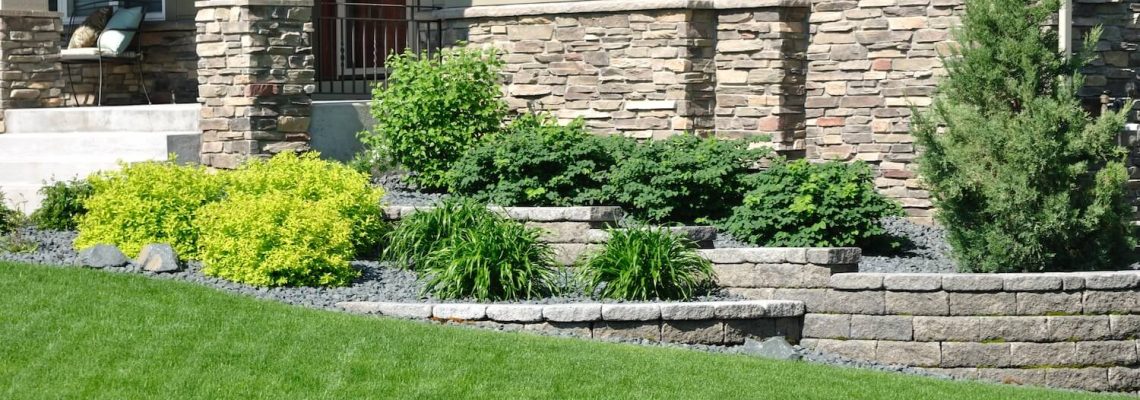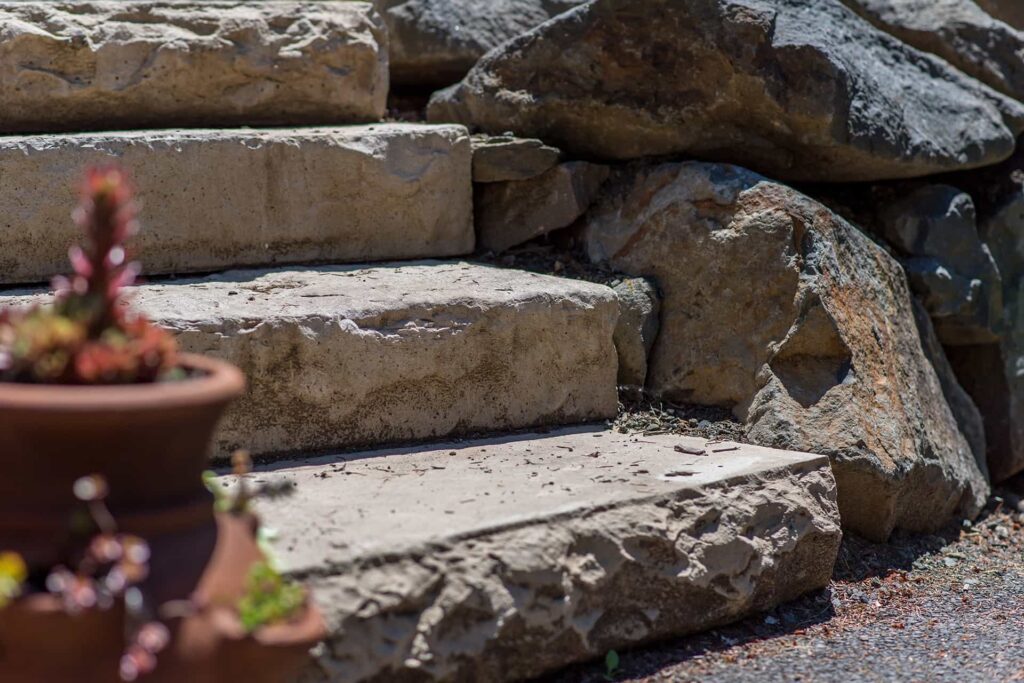Landscaping is a fundamental element of property aesthetics and functionality, playing a crucial role in enhancing curb appeal and creating inviting outdoor spaces. Among various landscaping solutions, pavers have become a popular choice for their versatility, durability, and aesthetic appeal. Professional paver installation is particularly beneficial for addressing and solving a wide range of common landscape challenges. This comprehensive article explores how expert paver installation can tackle these issues, offering both practical and aesthetic solutions.
1. Uneven Terrain and Erosion Control
Challenge
Uneven terrain and soil erosion are prevalent issues in many landscapes, particularly in areas with sloped or hilly terrain. Uneven surfaces can create tripping hazards, make maintenance difficult, and detract from the overall appearance of the landscape. Soil erosion, often exacerbated by heavy rainfall or poor drainage, can lead to significant problems such as loss of soil, exposure of roots, and damage to vegetation.
Solution
Professional paver installation provides an effective solution to uneven terrain and erosion control. One of the primary methods used is the construction of retaining walls. These structures are designed to hold back soil and create level areas on sloped landscapes. Retaining walls made from pavers not only stabilize the soil but also add a visually appealing element to the landscape.
During installation, professionals will first assess the site to determine the best approach for addressing the terrain. This typically involves excavating the area, setting a solid foundation, and constructing the retaining walls with proper drainage systems to manage water flow. The installation of pavers in tiered designs can further help in creating flat surfaces and reducing the risk of soil erosion.
Additionally, professionals can use graded pavers and proper base preparation to create level surfaces on uneven ground. This approach involves carefully measuring and aligning the pavers to ensure a smooth, even finish. By addressing these issues with precision, professional installation helps prevent further erosion and improves the usability of the outdoor space.
2. Water Drainage Problems
Challenge
Poor water drainage is one of the most common landscape problems, leading to issues such as pooling, flooding, and water damage. Traditional landscaping methods may not always effectively manage excess water, which can cause damage to property, erosion, and the deterioration of landscaping materials.
Solution
Pavers offer a practical and efficient solution for managing water drainage problems. One of the key benefits of pavers is their ability to incorporate permeable paving systems. These systems are designed to allow water to pass through the surface and be absorbed into the ground, reducing surface runoff and mitigating flooding risks.
Professional paver installers can design and implement a permeable paving system tailored to the specific needs of your landscape. This involves using pavers with gaps or spaces that facilitate water infiltration. Additionally, professionals will ensure that the underlying base is properly constructed to support water flow and prevent clogging. The installation of a well-designed drainage system in conjunction with permeable pavers can significantly enhance water management and reduce the risk of damage to your property.
3. Weed Growth and Maintenance
Challenge
Weed growth between traditional landscaping materials can be a persistent and frustrating problem. Weeds can invade patios, walkways, and driveways, leading to unsightly patches and requiring ongoing maintenance to keep them under control.
Solution
Professional paver installation can help address weed growth by utilizing effective techniques and materials that minimize the risk of weed invasion. During installation, professionals use high-quality joint fillers and weed barrier fabrics to prevent weeds from growing between the pavers.
Polymeric sand is commonly used in the joints between pavers. This special type of sand hardens when wet, creating a solid barrier that prevents weed seeds from germinating. Additionally, a weed barrier fabric is often placed beneath the pavers to further inhibit weed growth. This fabric acts as a physical barrier, preventing weed roots from penetrating the soil and reaching the surface. By incorporating these measures, professional paver installation ensures a cleaner, low-maintenance landscape that remains free of unwanted vegetation.
4. Durability and Longevity
Challenge
Many traditional landscaping materials and methods may not withstand harsh weather conditions, heavy foot traffic, or vehicular use. Over time, this can lead to wear and tear, requiring frequent repairs or replacements.
Solution
Professional paver installation offers a durable and long-lasting solution to these issues. Pavers are designed to endure various environmental conditions, including extreme temperatures, heavy rain, and UV exposure. They are also resistant to cracking and chipping, making them suitable for high-traffic areas and vehicular use.
High-quality pavers, such as those made from concrete, brick, or natural stone, are built to last. Professionals ensure that pavers are properly installed with a solid base and appropriate joint filling, enhancing their longevity. Additionally, if a paver becomes damaged or stained, individual pavers can be replaced without the need to redo the entire surface. This repairability adds to the overall durability and cost-effectiveness of paver installations.
5. Aesthetic Appeal and Customization
Challenge
Achieving a cohesive and visually appealing landscape can be challenging, especially when dealing with various materials and design elements. Property owners often seek materials that complement their existing landscape and architectural style.
Solution
Pavers offer a wide range of design options and customization possibilities. Professional paver installers can help create a design that aligns with your preferences and enhances the overall aesthetic of your landscape.
Pavers come in various colors, shapes, sizes, and patterns, allowing for creative and unique designs. Whether you prefer a classic brick look, a contemporary stone pattern, or a custom design, professionals can tailor the installation to meet your vision. Additionally, pavers can be combined with other landscaping elements, such as plants, lighting, and outdoor furniture, to create a harmonious and inviting outdoor space.
6. Safety and Accessibility
Challenge
Safety and accessibility are crucial considerations in landscaping. Uneven surfaces, loose materials, and poorly designed walkways can pose tripping hazards and make it difficult for individuals with mobility issues to navigate the space.
Solution
Professional paver installation addresses safety and accessibility concerns by providing a smooth, even surface that is easy to navigate. Pavers can be installed with precision to create level walkways, driveways, and patios, reducing the risk of trips and falls.
Furthermore, paver surfaces can be designed with accessibility features, such as ramps and textured patterns, to accommodate individuals with mobility challenges. For example, incorporating tactile paving or contrasting colors can help visually impaired individuals navigate the space more easily. By prioritizing safety and accessibility, professional paver installation ensures that outdoor spaces are welcoming and functional for all users.
7. Low Maintenance Requirements
Challenge
Many traditional landscaping options require significant maintenance to keep them looking their best. Regular upkeep can be time-consuming and costly, detracting from the enjoyment of your outdoor space.
Solution
Paver installations are known for their low maintenance requirements. Once installed, paver surfaces are relatively easy to care for, requiring minimal effort to maintain their appearance. Regular sweeping and occasional washing are typically sufficient to keep pavers looking clean and fresh.
Unlike traditional materials that may require resealing, re-sanding, or extensive upkeep, pavers maintain their appearance with minimal effort. Additionally, if individual pavers become stained or damaged, they can be easily replaced without the need to redo the entire surface. This ease of maintenance allows property owners to enjoy their outdoor spaces without the burden of constant upkeep.
8. Cost-Effectiveness and Value
Challenge
Budget constraints can be a significant factor when considering landscape improvements. Homeowners often seek cost-effective solutions that offer long-term value and minimize the need for future repairs or replacements.
Solution
While the initial cost of professional paver installation may be higher than some traditional methods, the long-term value is often greater. Pavers are durable and require minimal maintenance, reducing the need for frequent repairs or replacements.
Investing in high-quality pavers and professional installation can enhance property value and curb appeal. The aesthetic and functional benefits of paver installations can make a positive impact on the overall value of your property. Professionals can provide detailed cost estimates and help homeowners select options that fit their budget while delivering exceptional results.
9. Environmental Considerations
Challenge
Environmental concerns, such as sustainability and eco-friendliness, are increasingly important to many property owners. Traditional landscaping methods may not always align with these values.
Solution
Pavers offer environmentally friendly options, particularly with permeable paving systems. Permeable pavers are designed to allow water to filter through the surface and be absorbed into the ground, reducing surface runoff and promoting groundwater recharge.
This approach helps protect local ecosystems and minimizes the impact on the environment. Many paver manufacturers use sustainable materials and environmentally conscious practices in their production processes. Additionally, some pavers are made from recycled materials, further reducing their environmental footprint. By choosing environmentally friendly pavers and installation methods, property owners can contribute to a more sustainable landscape.
10. Seasonal and Climate Adaptability
Challenge
Different seasons and climates can impact the performance and appearance of landscaping materials. Extreme weather conditions, such as frost, heat, and heavy rain, can cause damage and affect functionality.
Solution
Professional paver installation can address seasonal and climate challenges by selecting materials that are suited to the local climate. Pavers are available in various materials, including concrete, brick, and natural stone, each with its own benefits and suitability for different weather conditions.
For example, concrete pavers are known for their durability and resistance to frost heave, making them suitable for colder climates. Natural stone pavers, on the other hand, offer a timeless aesthetic and can withstand high temperatures and heavy rainfall. Professionals can recommend and install pavers that are specifically designed to endure the local climate, ensuring that your landscape remains functional and attractive throughout the year.
Additional Considerations and Best Practices
- Site Preparation: Proper site preparation is crucial for the success of paver installation. Professionals will conduct a thorough assessment of the site, including soil testing and grading, to ensure a stable foundation for the pavers. This preparation helps prevent issues such as settling, shifting, and uneven surfaces.
- Choosing the Right Pavers: Selecting the right type of pavers for your project is essential. Consider factors such as material durability, color, texture, and pattern. Professionals can provide guidance on the best paver options based on your design preferences and functional needs.
- Installation Techniques: The installation process involves several key steps, including excavation, base preparation, paver placement, and joint filling. Professionals use specialized tools and techniques to ensure precise and efficient installation. Attention to detail during each step is critical for achieving a high-quality result.
- Maintenance Tips: While pavers are low-maintenance, some periodic upkeep is still necessary. Regular sweeping, washing, and occasional sealing can help maintain the appearance and longevity of your pavers. Professionals can provide maintenance recommendations and tips to keep your landscape looking its best.
Conclusion
Professional paver installation offers a comprehensive solution to a wide range of common landscape challenges. From addressing uneven terrain and water drainage issues to enhancing aesthetic appeal and ensuring safety, pavers provide a versatile and durable option for improving outdoor spaces. By investing in expert installation, homeowners can enjoy a functional, low-maintenance, and visually appealing landscape that adds long-term value to their property.
Choosing to work with experienced paver professionals ensures that these challenges are addressed with precision and expertise. Whether you’re looking to revitalize your outdoor space or solve specific landscaping problems, professional paver installation offers practical and effective solutions that enhance the beauty and functionality of your landscape.


